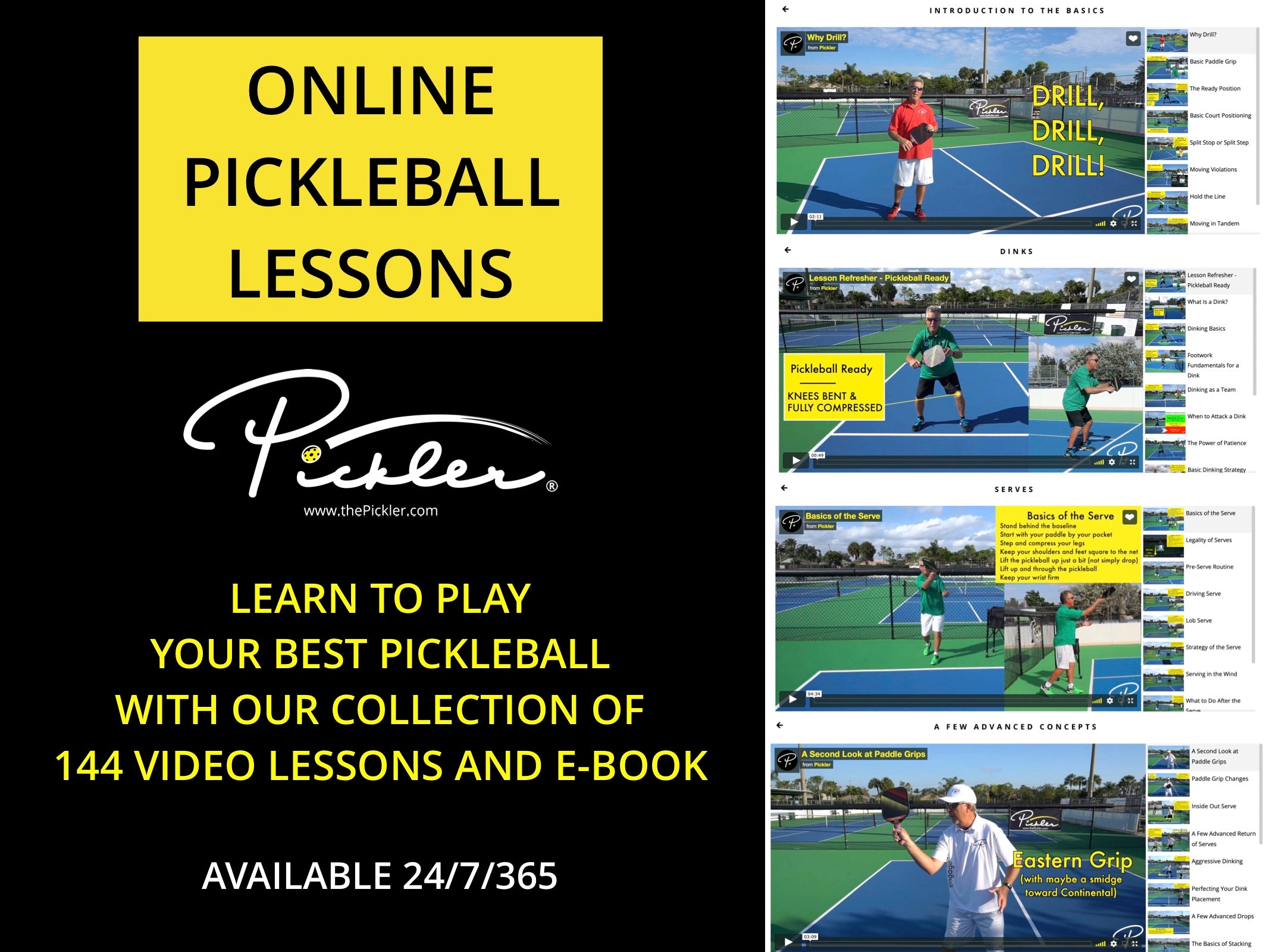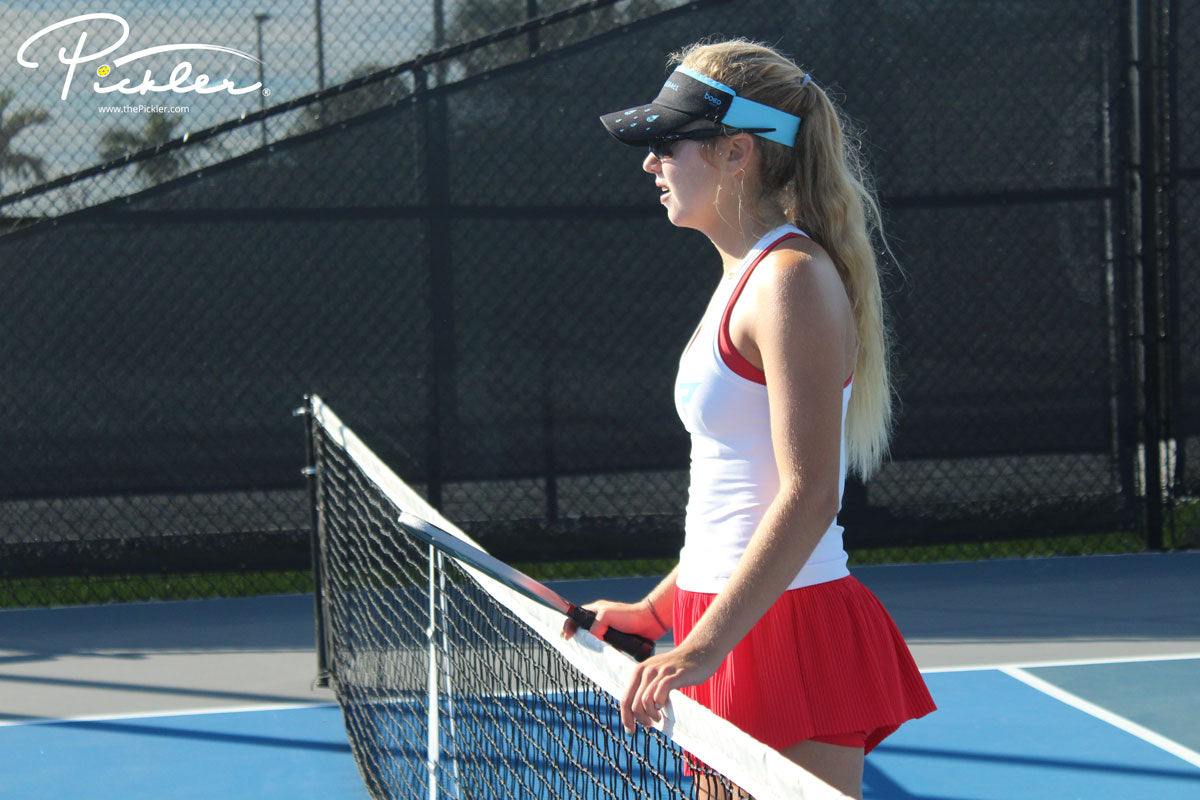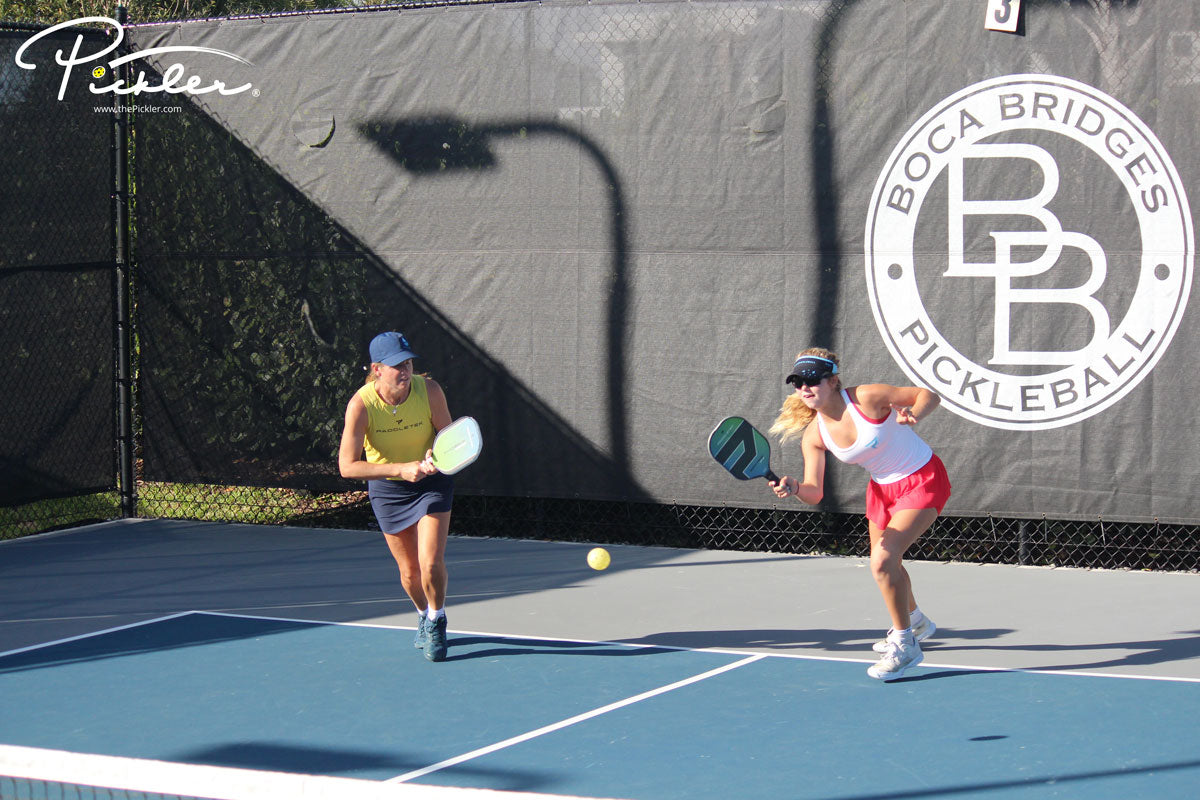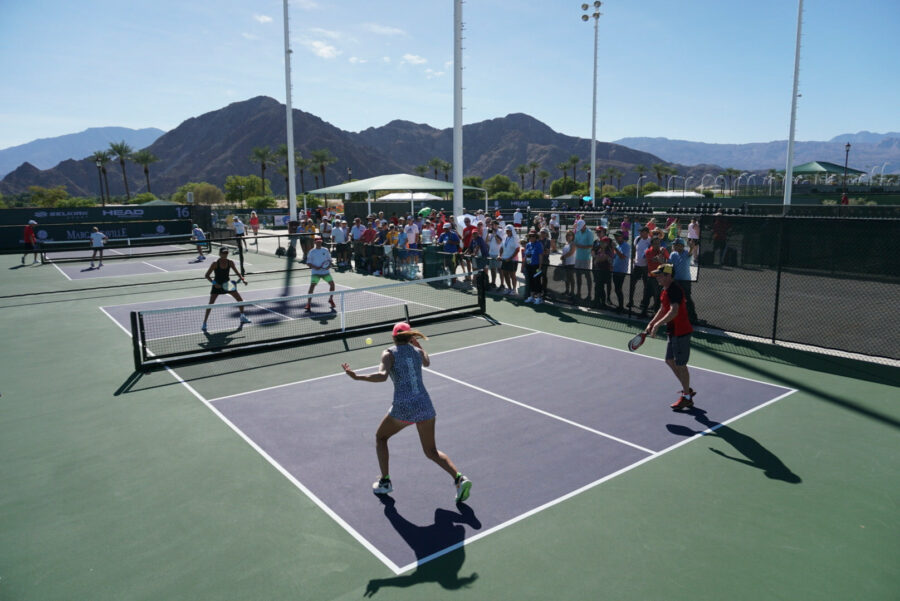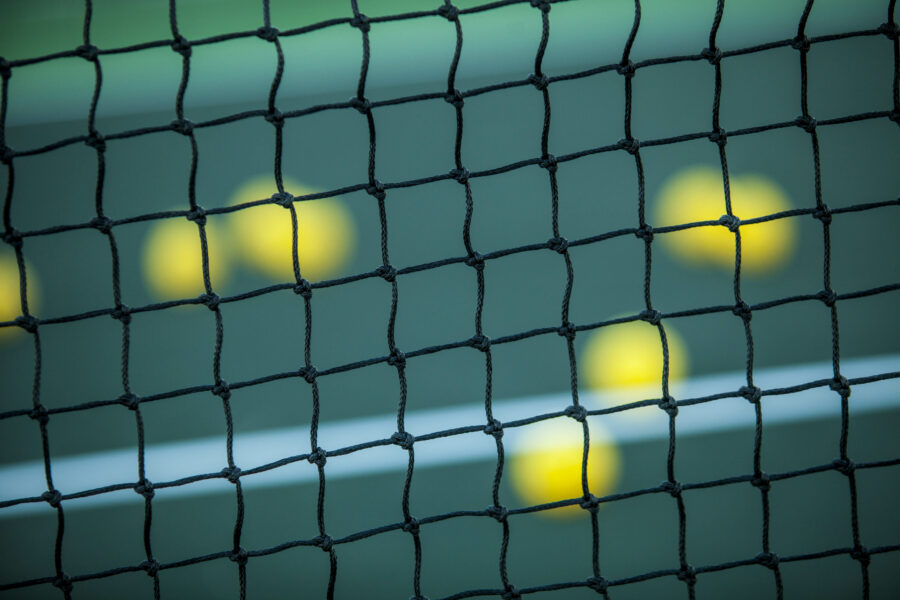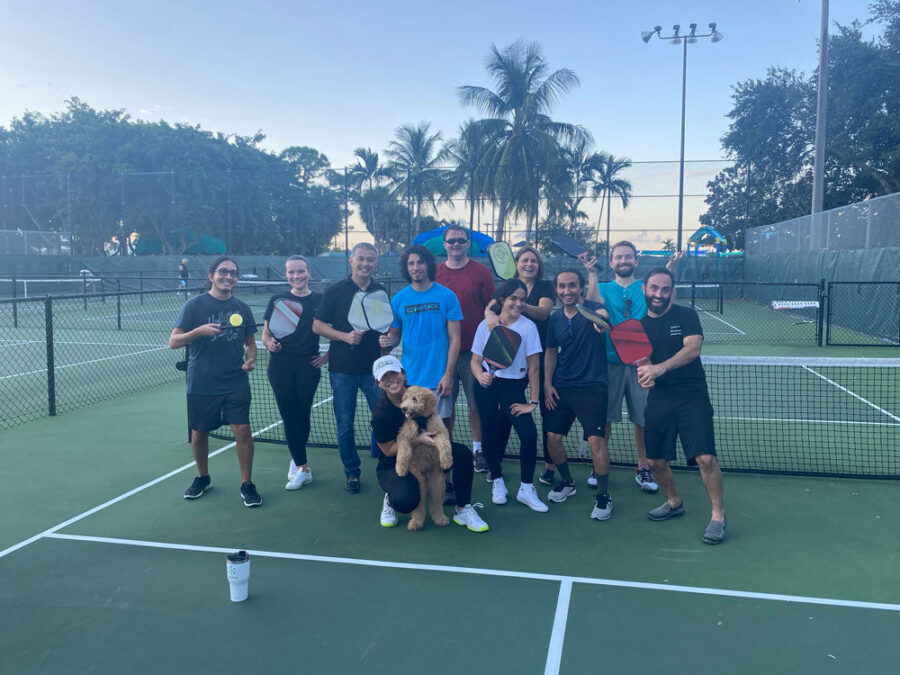In pickleball, there are some skills that are widely known and talked about—for instance, serve deep in the court to push your opponents back and try to make your third shot easier. There are also other skills that less widely discussed—one of which will be the subject of this pickleball blog today. One such lesser-known skill in the sport of pickleball is game management.
What Is “Game Management” in Pickleball?
Game management refers to how you (and your partner in doubles pickleball) play and adapt based on the situation of the game. This concept becomes more prevalent as you grow and continue your pickleball journey. For instance, when you are first starting in pickleball or maybe playing recreationally in open play, you likely will not have any concept of game management changing how you play for different scenarios. Rather, you just want to play and have fun out on the pickleball court. However, as you play in more competitive environments—for instance, a pickleball tournament, league, round robin, or other competitive format—you will want to adapt and manage your game in order to help you have more success on the court.
How to Use Game Management to Win More Pickleball Games
Game management is critical to success on the pickleball court, in large part to how prevalent momentum is in the sport. Momentum is an unquantifiable and intangible, but powerful, force on the pickleball court. Oftentimes, you cannot explain why you have the momentum, but you better use it while you have it because once you lose the momentum, it can be extremely difficult to get back. And, game management is one tool to help you harness all the momentum that you can in pickleball.
With that said, there are a few ways you can help manage your game on the pickleball court:
- Adapt Your Strategy – First and foremost, it is critical to adapt your strategy to the circumstances in front of you. This means taking into account, among other things, how your play style meshes with your partner’s, how your play style matches your opponents, and how outside forces (like wind) are affecting the game. It is important to play to your strengths and minimize your weaknesses, while highlighting your opponents’ weaknesses and avoiding their strengths (which is easier said than done). It is also critical to continuously make adjustments—if you make an adjustment, be ready for your opponents to counter, which means you may have to adjust again, and so on. If you find yourself losing a game, change something—do not lose the same way the entire game. Analyze and adapt your strategy constantly.
- Play to Your Tempo – When you are on the pickleball court, you can speed up play or slow down play to your advantage. For instance, when you have momentum, it is probably a good idea to push to the next point and keep the tempo of the game quick in order to fluster your opponents. In other words, grab the pickleball quickly and get ready to serve (but, it is important to note that this does not mean rushing your shots—rather, it means rushing your opponents to the next point, so they do not have any time to adjust their strategy). On the flip side, when you do not have the momentum, it is a good idea to slow down and draw out the next point (without going so far as to delay the game in an inappropriate manner). This may mean taking time to go pick up the pickleball or taking a hydration break or break to wipe sweat. It is also a good idea to slow down the game if you are out of breath (which is more common in singles pickleball). If you are winded, then that could negatively affect your ability to make shots. So, pay attention to the tempo of the pickleball game and manipulate the tempo to help you maximize your momentum.
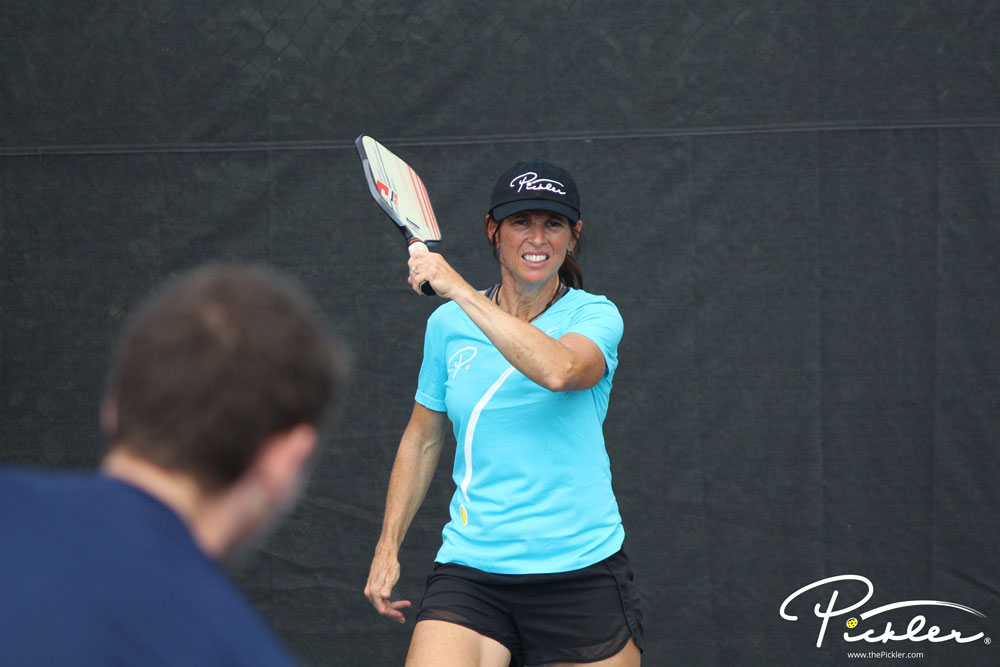
- Use Your Time-Outs – In competitive pickleball, you will generally have the opportunity to use time-outs, which can be one of the easiest ways to break or change the momentum of a pickleball game or otherwise re-group or re-strategize when needed. The general advice is to use your time-outs! If you do not use your time-outs, you do not get to keep them or take them home with you. A good rule of thumb is to call a time-out if your opponents have scored three points in a row. A time-out will give you and your partner the opportunity to think and re-focus. Also, consider strategizing with your support team or coach during time-outs. Your support team or coach could add a fresh perspective to your strategy if you need it.
- Play with Energy – One way to help gain momentum on the pickleball court is to play with energy. This means quick feet and aggressive play, but also energizing you and your partner with paddle taps, “Come ons!,” and other positive, authentic ways to keep you both engaged and in the moment on the court. Oftentimes, whoever has the best on-court energy will win the game and your energy is something entirely within your control, so play with great energy!
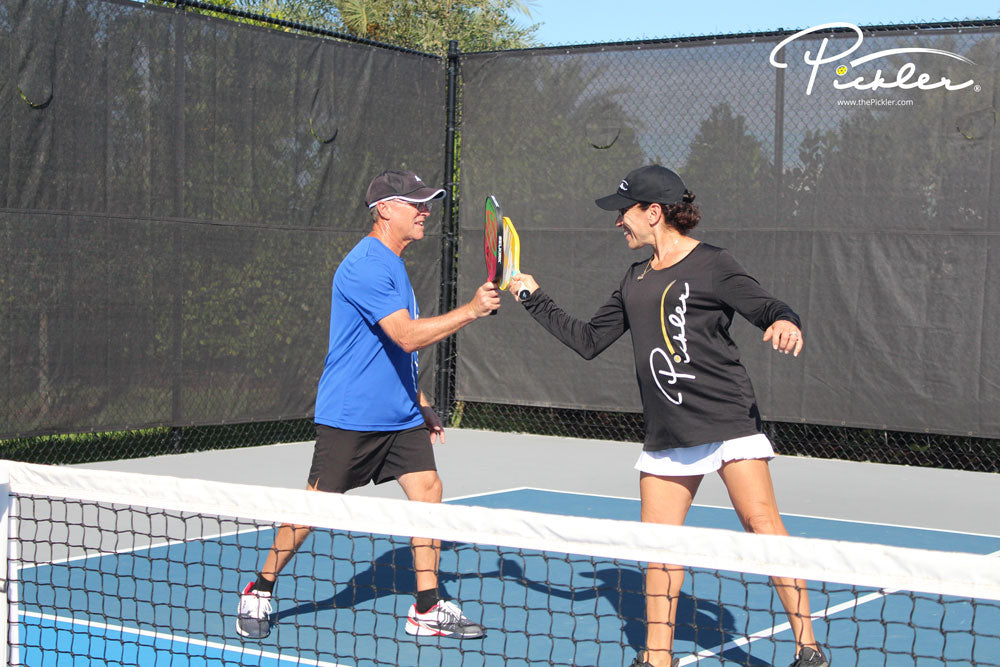
- Manage Your Emotions – On the flip side, avoid letting negative energy creep into your pickleball game (for instance, no paddle throws, no temper tantrums, etc.). To do this, manage your emotions. Focus on one-point at a time. Do not let self-doubt or negative thoughts get you down (even if you lose the first game in a best 2 out of 3 match, 11-0). Further, manage your nerves. Nervousness—particularly, in a competitive environment—can be a good thing because it means that you care about the outcome and it is a way for your body to help you play your best (think adrenaline). However, there is a tipping point where nerves can be paralyzing, too stressful, and affect your performance. Manage your emotions, so that your nerves are only helping you (with energy and adrenaline).
- Manage Your Body – Just as your mental game is critical on the pickleball court, so too is your physical game. So, be sure to manage your body, which is especially true during long tournament days where you may be out at the pickleball courts from sun up to sun down with long breaks between games. To manage your body, be sure to get the hydration and nutrition that you need to sustain your performance throughout the day. This starts days before your on-court play (not just the day of). Further, be sure to get the appropriate rest you need, as well as improve your physical fitness with exercise/cross-training and improve your flexibility with stretching to prevent injuries. Fitness and stretching will give you an extra step, an extra reach, that extra power, etc. on the pickleball court, which may be the edge you need to pull out the win.
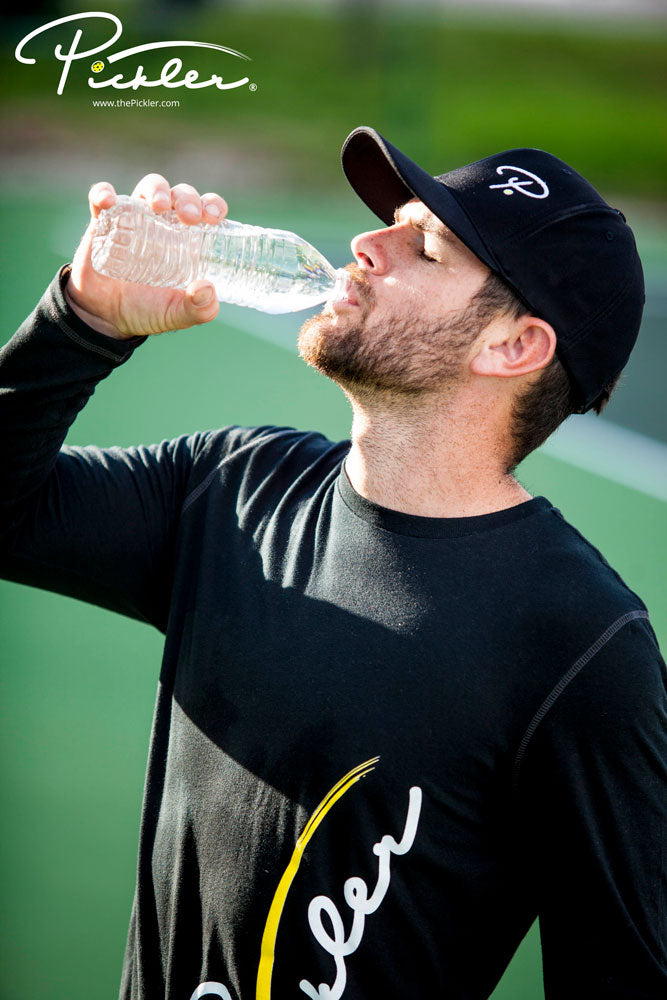
- Close the Door – Sometimes, the hardest part of any pickleball game is getting the last point (which is typically the 11th point, so pickleball players oftentimes get stuck on the #10). Anecdotally, this last point may be difficult to get because you and your partner start playing tight and conservative, or, sometimes, you and your partner could be going for the “hero” shot—in other words, going for way too much and over-playing—instead of staying steady and playing consistent. At the same time, your opponents typically have nothing to lose, so they start playing more aggressive and swinging freely. To avoid getting stuck on the #10, and close the door against your opponents, remain mentally tough. Stay relaxed, keep your emotions at bay, play the same level of pickleball that you played to get to the #10, and put pressure on your opponents by playing “clean”—in other words, keep the pickleball in the court and over the net.
Master this skill of game management for more wins on the pickleball court!
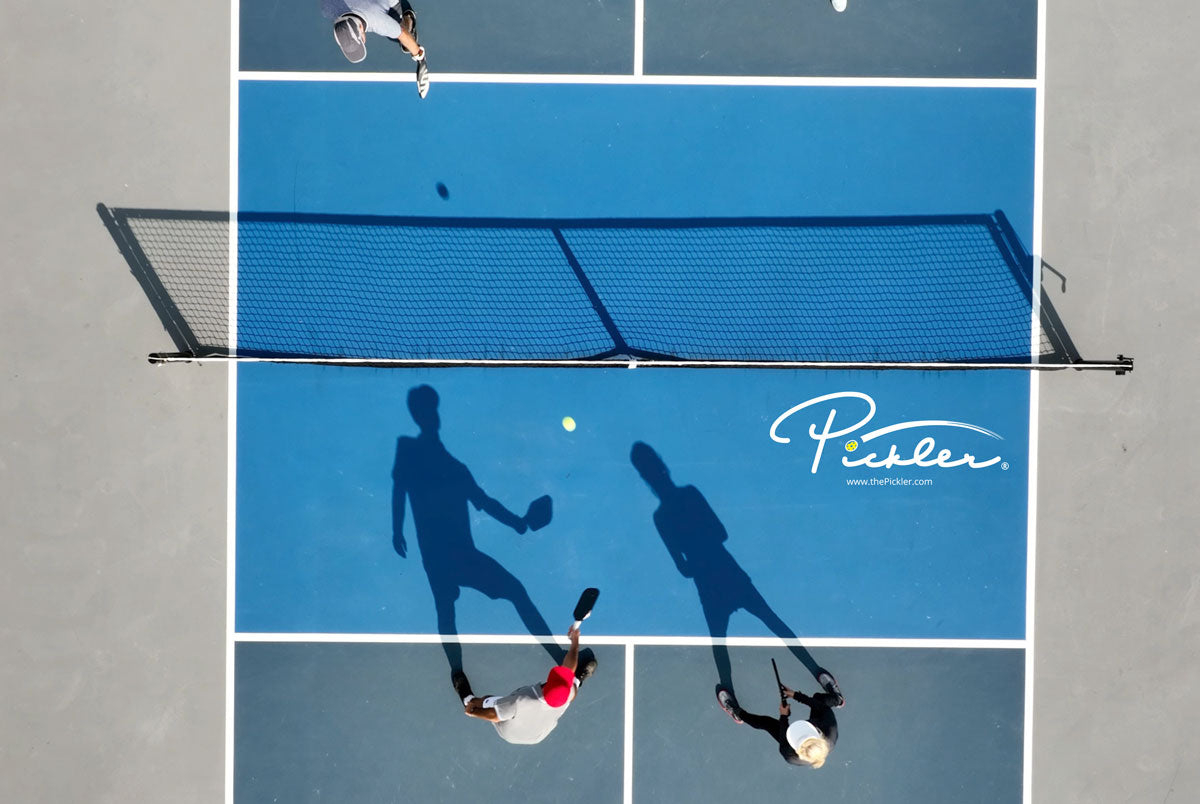
WANT MORE PICKLEBALL TIPS AND STRATEGIES?
Learn 3 tips to win easy points with movement alone!
Plus, if you want more pickleball tips and strategies on every aspect of your pickleball game, check out Pickler’s online video lesson collection called My Pro Pickleball Coach. My Pro Pickleball Coach is a fraction of the price of one clinic or even one lesson, and features over 140 video lessons (over 7 hours of instruction!), as well as a corresponding e-book. These online video lessons are available on demand 24/7 and breakdown every aspect of the sport of pickleball, including pickleball drills, strategy, and advanced concepts, so you will play your best pickleball.
